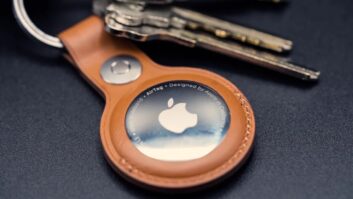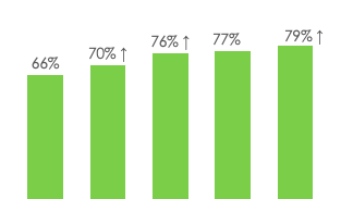CUPERTINO, CALIF. —
Apple
certainly knew how to kick the
New Year off with a bang.
Apple managed to fully
dominate the traditional industry
news cycles for the first
three weeks of the year with a
series of announcements that
included the iPhone finally
coming to Verizon, the sad
news that CEO and founder
Steve Jobs is taking another
medical leave of absence, and
the company’s best ever financial
report.
Jobs said Tim Cook, Apple’s
COO, will again be responsible for the company’s dayto-
day operations as Cook has in the CEO’s previous
medical leaves.
However, Jobs’ personal announcement
to focus on his
health again kicked off speculation
over whether the company
will survive at its current
high level without his firm hand
on the helm and the intangibles
Jobs brings to Apple.
Analysts tended to cover all
their bases, saying the shortterm
impact should be minimal
as Jobs will continue to have
some input in the operation,
however the outlook was a bit
darker if Jobs is not able to return
to Apple full time.
“I have a lot of respect for the
Apple management team, and I think the company will do fine in Steve’s absence. He is still engaged for the most
important decisions, but even if he weren’t I think the company
would execute fine for the forseeable future,” said Van
Baker, VP and research director for Gartner’s retail and
manufacturing industry advisory services. “That said, I am
not minimizing Steve’s presence as I think the entire Apple
culture is a product of Steve and his presence is pervasive
in the Apple culture.”
Apple’s long-term outlook is less sanguine if Jobs remains
on medical leave for an extended period or doesn’t
come back at all to a full-time position.
Strategy Analytics senior analyst Alex Spektor said,
“Mr. Jobs himself is one of Apple’s core differentiators.
A significant part of Apple’s success should be attributed
to Mr. Jobs’ strong, top-down management style and
long-term vision.
“While Mr. Cook and the rest of the senior management
team at Apple should be credited with helping to
execute this vision, Apple’s ability to out-innovate the
competition will be dependent on Mr. Jobs,” he said.
Ezra Gottheil, senior analyst at Technology Business
Research, also sees the potential for Apple to lose
some of its inventiveness if Jobs’ absence is long-term,
but he does not see that prospect as a crucial blow.
“Every few years, Apple does something very fresh,
such as launching the iPod, iPhone and iPad,” Gottheil
explained. Because “that kind of instinct is very rare,”
an Apple without Jobs “might not have the percentage
of successes” that it has had in making “major strategic
leaps forward,” Gottheil continued.
Jobs’ medical leave comes at a time when Apple is at
the top of its game, according to its fiscal first-quarter
report for the period ending Dec. 25. Here are some of
the notable numbers from the report, with comparisons
to last year:
• Revenue was $26.7 billion, up from $15.7 billion, with
62 percent of sales coming from overseas.
• Net profit was $6 billion, up from $3.4 billion.
• Apple Stores had sales of $3.85 billion, up 95 percent
from the $1.97 billion. Each of the 321 Apple Stores
had average revenue of $12 million, up from last year’s
$7.1 million average.
Peter Oppenheimer, Apple’s CFO, said about 75.7
million people visited Apple Stores during the quarter,
up from the 50.9 million that came during the same
period the year before. Oppenheimer noted the company’s
four locations in China had the most revenue
and store traffic in the entire chain.
The reason for all this is the overwhelming acceptance
of Apple’s Macs, iPads, iPhones and iPods.
Oppenheimer said 851,000 Mac desktops and laptops
were purchased in the stores during the quarter,
with have of those sales going to people who had
never before bought an Apple computer.
And here are the impressive unit sales totals:
• Apple sold 7.33 million iPads in its first holiday
season.
• 4.13 million Macs were sold, a 23 percent increase
over the prior year’s fiscal first quarter.
• 16.24 million iPhones were sold, a whopping 86 percent
jump in unit growth.
19.45 million iPods were sold, a 7 percent unit sales
increase.













